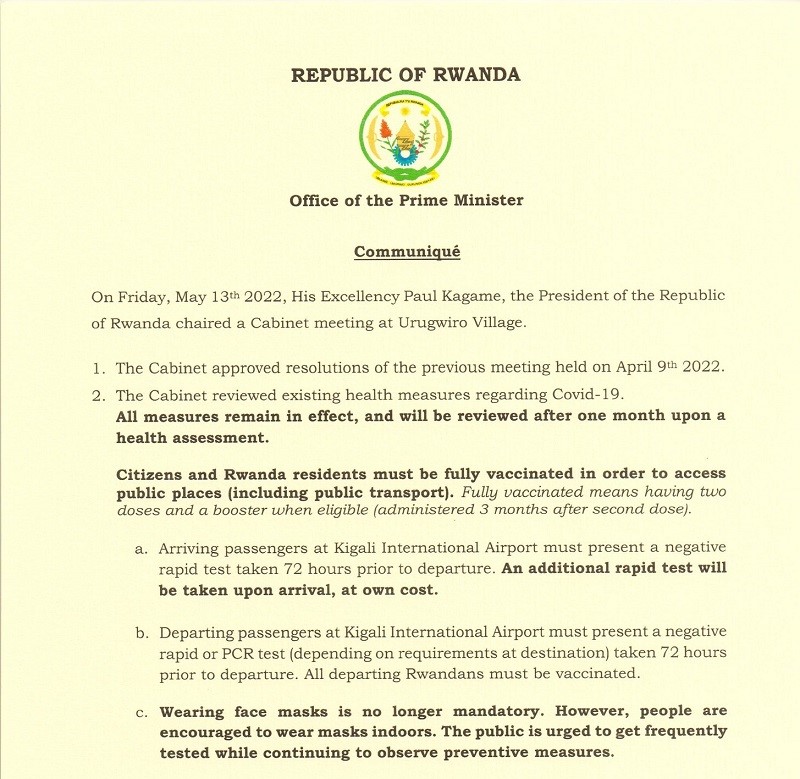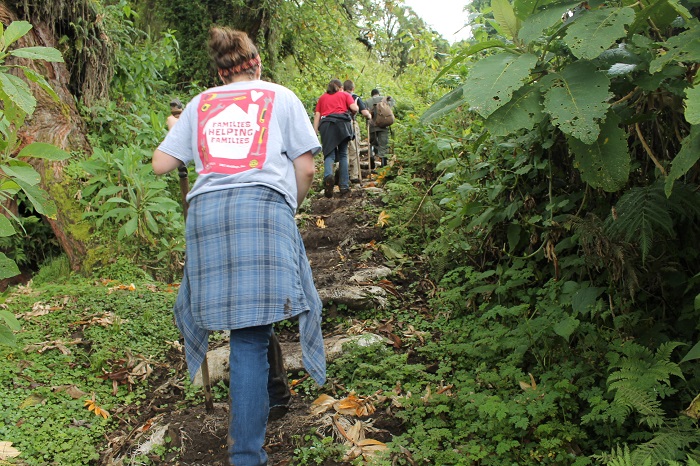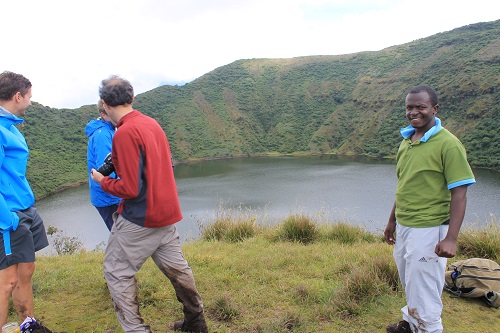What started out as a dream is now a reality. Rwanda is now a Big Five destination hosting all the big five animals in Akagera National Park, the country’s only savannah destination. What has famously been labeled a Mountain Gorilla destination, Rwanda will now be a Mountain Gorilla and Big Five destination. Tourists will not need to go elsewhere to see the African Big Five before visiting Rwanda for the popular gorilla trek.
Reintroduction of rhinos and lions in Akagera National Park.
The rhinos and lions had been absent from Rwanda for decades. After years of reviving the park and putting in place strong safety measures including constructing an electric fence, it was time to bring back these animals and complete the big five in Akagera National Park and Rwanda.
In 2015 lions were reintroduced back into the park, and two years later the first batch of rhinos (Black Rhinos) were brought in. Both animals are thriving and reproducing.
Status of the Big Five in Akagera National Park and the chance of ticking them off your bucket list
Rhinos
Akagera National Park has both the black rhino and the white rhino species. Not many parks and wildlife reserves are lucky to have both species.
The black rhinos were the first to be reintroduced in the park in 2017, numbering 15. These live in the woodland southern area of the park that has a lot of acacia woodlands and forests, the ideal habitat for black rhinos that are browsers, feeding upward on tree leaves. Chances of seeing the black rhinos are very minimal because of the habitat and small number of the rhinos.
30 white rhinos were translocated into the park in 2021. These are thriving in Akagera and a calf has been born from this group in May 2022. White rhinos are grazers feeding mostly on grass and are therefore found in the grassland northern region of the park, particularly around the Kilala plains.
There are better chances of seeing the white rhinos than the black rhinos.
Akagera park also offers a rhino tracking activity where visitors can join park rangers on their morning routine to monitor the rhinos. If you want a sure way to tick off the rhinos you can book the rhino tracking activity.
Lions
In 2015 the “king of the jungle” made a comeback into Akagera National Park when 7 lions were translocated into the park. The lions have thrived and multiplied seven times as of 2022 and chances of seeing them on a safari trip to Akagera have increased over time.
The lions have been spotted both in the south and the north of Akagera, however the best chances are in the north near the plains where plenty of antelopes and other grazers occupy the grasslands and make the perfect hunting grounds for the lions and other cats.
At the end of the long game drive from the south to the north you will likely find the lions relaxing under a tree after the morning hunt in the plains. The entrance of the park is in the south and is the base for starting safaris in Akagera National Park.
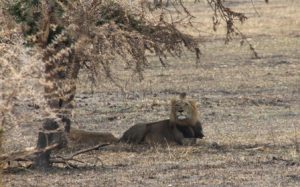
Buffaloes
Buffaloes are the commonest member of the big five in Akagera National Park and can be seen in a variety of habitat throughout the park. About 4000 buffaloes are present in the park.
You will find large herds of buffalo in the northern plains.
Elephants
A few decades ago, elephants were on the same path as the lions and rhinos of being wiped out in Rwanda. They were severely poached during the civil wars. But kudos to the government of Rwanda and African Parks organization that has been managing the park for the last 10 years whose efforts to have one of the most protected national parks in Africa has seen the elephant population steadily recovering. There are about 133 elephants in Akagera National Park according to the previous animal census in 2021.
Ten years ago it was sheer luck to find a herd of elephants let alone lone individuals during a safari in Akagera. Now you will be unlucky not to see a herd of elephants on your safari in Akagera National Park.
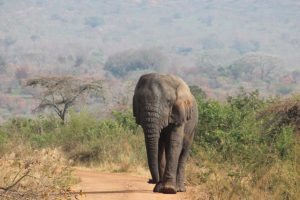
Leopard
This is the most elusive of the African Big Five that requires some luck to see. The leopards are solitary and very stealth in their movements. The night safari drive will increase your chances to see the leopard who are more active at night. The night drive is available both in the south and in the north for the residents of Karenge Bush Camp.
Trips to Book to see the Big Five in Akagera
2 days safari trip to Akagera National Park
3 Days Akagera National Park tour with optional rhino tracking
